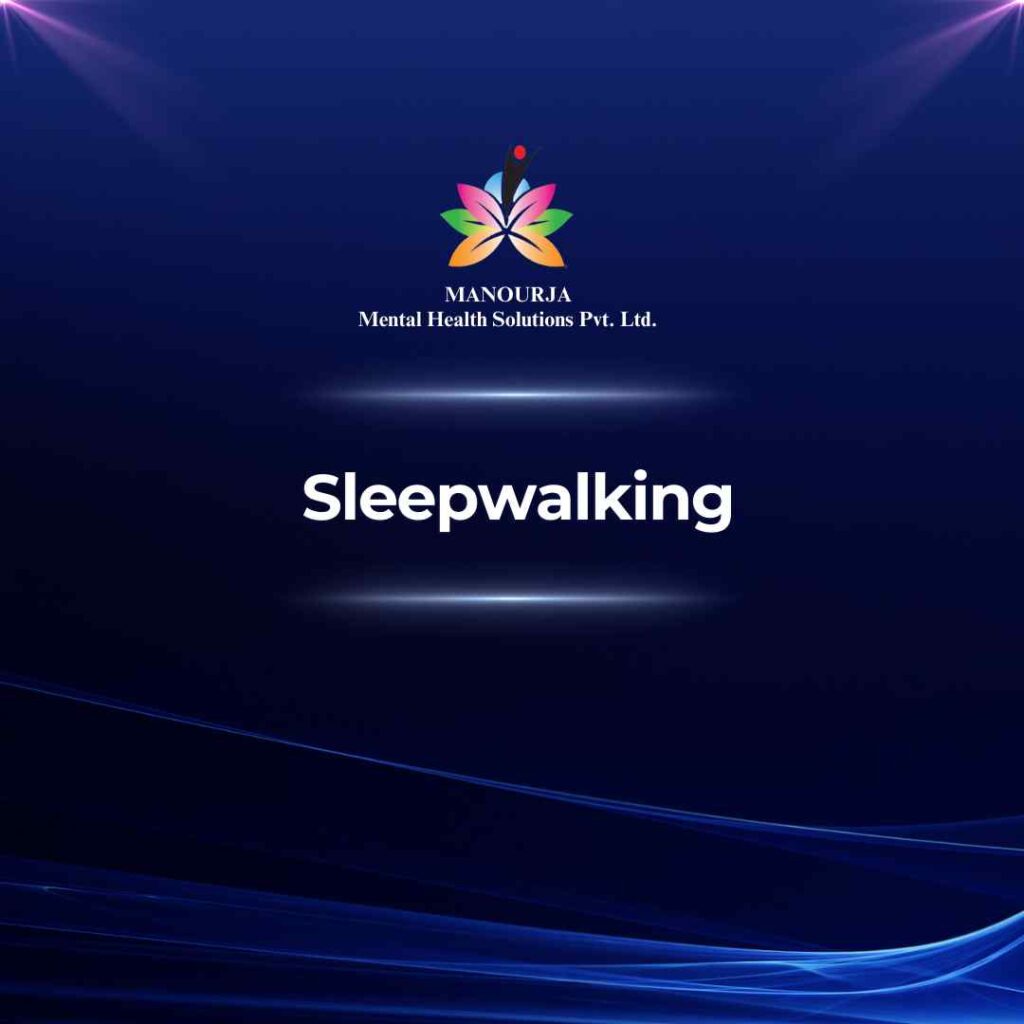Sleepwalking

Sleepwalking, also known as somnambulism, is a sleep disorder characterized by complex behaviors that occur during deep sleep, typically during the non-rapid eye movement (NREM) stages of sleep. These behaviors can range from simple actions like sitting up in bed to more complex activities such as walking, talking, or even driving a car, all while the person remains asleep and unaware of their actions.
Sleepwalking as a Sign and Symptom
Sleepwalking is considered a parasomnia, a type of sleep disorder that involves abnormal behaviors, movements, perceptions, or emotions during sleep. It can occur sporadically or regularly and is more common in children than adults. While sleepwalking itself is not typically considered a sign of mental illness, it can be associated with or exacerbated by certain psychiatric conditions, medical conditions, or medications.
Conditions and Factors Associated with Sleepwalking:
- Genetics: There may be a genetic predisposition to sleepwalking, as it tends to run in families.
- Stress and Anxiety: High levels of stress or anxiety can increase the likelihood of sleepwalking episodes.
- Sleep Deprivation: Lack of adequate sleep or irregular sleep patterns can trigger sleepwalking.
- Medical Conditions: Certain medical conditions, such as fever, obstructive sleep apnea, restless legs syndrome, and epilepsy, can contribute to sleepwalking.
- Psychiatric Disorders: Although sleepwalking itself is not a mental illness, it can sometimes occur in association with psychiatric disorders such as:
- Post-Traumatic Stress Disorder (PTSD): Sleepwalking may be more common in individuals who have experienced trauma.
- Anxiety Disorders: High levels of anxiety or stress can increase the likelihood of sleepwalking episodes.
- Mood Disorders: Disorders like depression or bipolar disorder can sometimes be associated with sleep disturbances, though not always directly with sleepwalking.
Managing and Treating Sleepwalking:
Treatment for sleepwalking typically involves addressing underlying factors and creating a safe sleep environment:
- Improving Sleep Hygiene: Establishing a regular sleep schedule, maintaining a calming bedtime routine, and ensuring a comfortable sleep environment can help reduce sleepwalking episodes.
- Safety Measures: Minimizing potential hazards in the sleep environment, such as removing sharp objects or locking doors and windows, can prevent injury during sleepwalking episodes.
- Medication: In some cases, medications such as benzodiazepines or antidepressants may be prescribed to help regulate sleep patterns and reduce sleepwalking episodes, particularly if associated with other psychiatric conditions.
- Behavioral Therapy: Cognitive-behavioral therapy (CBT) techniques, such as relaxation exercises and stress management strategies, may help reduce stress levels and improve sleep quality.
- Consultation with a Specialist: If sleepwalking is frequent, severe, or associated with other symptoms, consulting with a sleep specialist or psychiatrist may be recommended to explore underlying causes and develop a tailored treatment plan.
By addressing underlying factors contributing to sleepwalking and implementing appropriate interventions, individuals can often manage and reduce episodes effectively, improving overall sleep quality and safety.
At MANOURJA, we believe in the transformative power of counseling. Our experienced therapists offer a safe and supportive space where you can explore your thoughts, emotions, and challenges. Through personalized counselling sessions, we’ll work together to develop coping strategies, build resilience, and achieve lasting positive change. Discover the path to a healthier, happier you with MANOURJA counselling services.
MANOURJA Rehabilitation Services
At MANOURJA, we’re dedicated to helping you in rebuild your life, after difficult times. Our rehabilitation services focus on understanding what you need to move forward, whether you’re recovering from addiction, trauma, or any psychological – social challenges. We create personalized plans, that are all about helping you, regain your strength and find hope again. With a caring team by your side, you’ll have the support to make real progress and take steps toward a brighter, healthier future.
